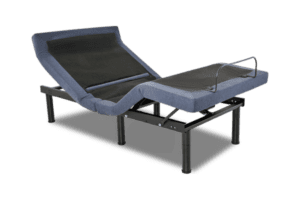Understanding the Dangers of Acid Reflux in Your Sleep
Acid reflux is a significant concern for many, particularly when it disrupts your sleep. It’s natural to wonder: Is acid reflux in your sleep dangerous? While the condition itself typically isn’t fatal, the potential complications of untreated gastroesophageal reflux disease (GERD) can be severe. This article will clarify misconceptions, illuminate the potential dangers, and offer insights on effectively managing nighttime acid reflux.
The Risks Associated with Nighttime Acid Reflux
1. Heartburn: Characterized by a burning sensation in the chest, this is the hallmark of acid reflux and can significantly disrupt your sleep.
2. Aspiration Pneumonia: Severe reflux can allow stomach acid to enter the lungs, resulting in serious infections.
3. Barrett’s Esophagus: Chronic exposure to stomach acid may alter the lining of the esophagus, raising the risk of esophageal cancer.
Due to these serious risks, managing acid reflux is crucial, especially while you sleep.
What is Acid Reflux and GERD?
Acid reflux occurs when stomach acid flows back into the esophagus. This reflux can lead to a variety of uncomfortable symptoms collectively known as GERD.
Factors Contributing to Acid Reflux
The primary culprit in acid reflux is the lower esophageal sphincter (LES), a muscle that acts as a valve between the esophagus and stomach. When the LES relaxes inappropriately, stomach contents can flow back up. Several factors weaken the LES:
– Obesity: Excess weight exerts pressure on the stomach, increasing the likelihood of acid reflux.
– Hiatal Hernia: This occurs when a portion of the stomach pushes through the diaphragm.
– Pregnancy: Hormonal changes and pressure from a growing fetus can lead to reflux.
– Smoking: This habit may weaken the LES and stimulate excess acid production.
– Certain Medications: Drugs such as aspirin and ibuprofen can exacerbate reflux symptoms.
Symptoms of Acid Reflux
Identifying the symptoms of acid reflux is essential for effective management:
– Heartburn: An uncomfortable burning sensation in the chest or throat.
– Regurgitation: A sour or bitter taste in the mouth due to acid.
– Dyspepsia: Bloating, flatulence, and nausea are common discomforts associated with acid reflux.
Why Does Acid Reflux Occur More at Night?
Gravity normally helps keep stomach acid in its place when you’re upright. However, lying down can allow acid to flow back into the esophagus more easily. Furthermore, eating late at night can exacerbate the issue, as your stomach continues to digest food while you’re horizontal.
During sleep, your body produces less saliva, which neutralizes acid, increasing the vulnerability of the esophagus to reflux. Additionally, individuals may swallow less during sleep, giving acid more time to irritate the esophagus.
The Link Between Acid Reflux and Sleep Disorders
Research shows that those with GERD often experience more severe symptoms at night. The interplay between acid reflux and conditions like sleep apnea highlights the importance of addressing nighttime symptoms. In individuals with obstructive sleep apnea (OSA), episodes can trigger spasms that may force acid up the esophagus, creating a troubling feedback loop between two conditions.
Can You Die from Acid Reflux in Your Sleep?
While you cannot die directly from acid reflux, its untreated complications can be serious. Persistent exposure can lead to esophagitis or Barrett’s esophagus, both of which require immediate medical attention. Though many individuals with GERD report waking up due to coughing or choking sensations, the body typically reacts by waking to clear the airway before any serious risk occurs.
How to Prevent Nighttime Acid Reflux
Elevate Your Head and Chest
One effective strategy to reduce nighttime reflux involves elevating your upper body. Using a wedge pillow or raising the head of your bed by 6-8 inches utilizes gravity to help keep acid in the stomach.
Sleep on Your Left Side
Sleeping on the left side can promote better digestion and reduce the incidence of reflux, as this position aids the LES in keeping stomach contents contained.
Choose Loose-fitting Sleepwear
Tight clothing can exacerbate acid reflux symptoms by applying unwanted pressure. Opt for comfortable, loose-fitting pajamas to encourage restful sleep.
Dietary Choices Matter
Avoid large meals and manage your eating schedule to minimize reflux. Finishing your last meal at least two hours before sleeping can make a substantial difference.
When to Consult a Doctor
If you frequently experience nighttime reflux symptoms, it may be time to consult a healthcare professional. Key signs to watch for include:
– Frequent heartburn more than twice a week
– Difficulty swallowing
– Unexplained chronic cough
– Regurgitation of acid
A doctor may recommend tests such as endoscopy or pH monitoring to determine the severity of your condition.
Final Thoughts: Taking Control of Your Sleep and Health
Managing acid reflux, particularly during the night, is essential for achieving better sleep and overall well-being. By understanding the risks and implementing effective strategies, you can significantly reduce the impact of nighttime acid reflux on your life.
At Yawnder, we offer a range of sleep aids specifically designed to help individuals combat nighttime acid reflux, creating a pathway to restorative sleep. Explore our products and take proactive steps toward healthier sleep today. Remember, addressing acid reflux may lead to better nights and brighter days.

















